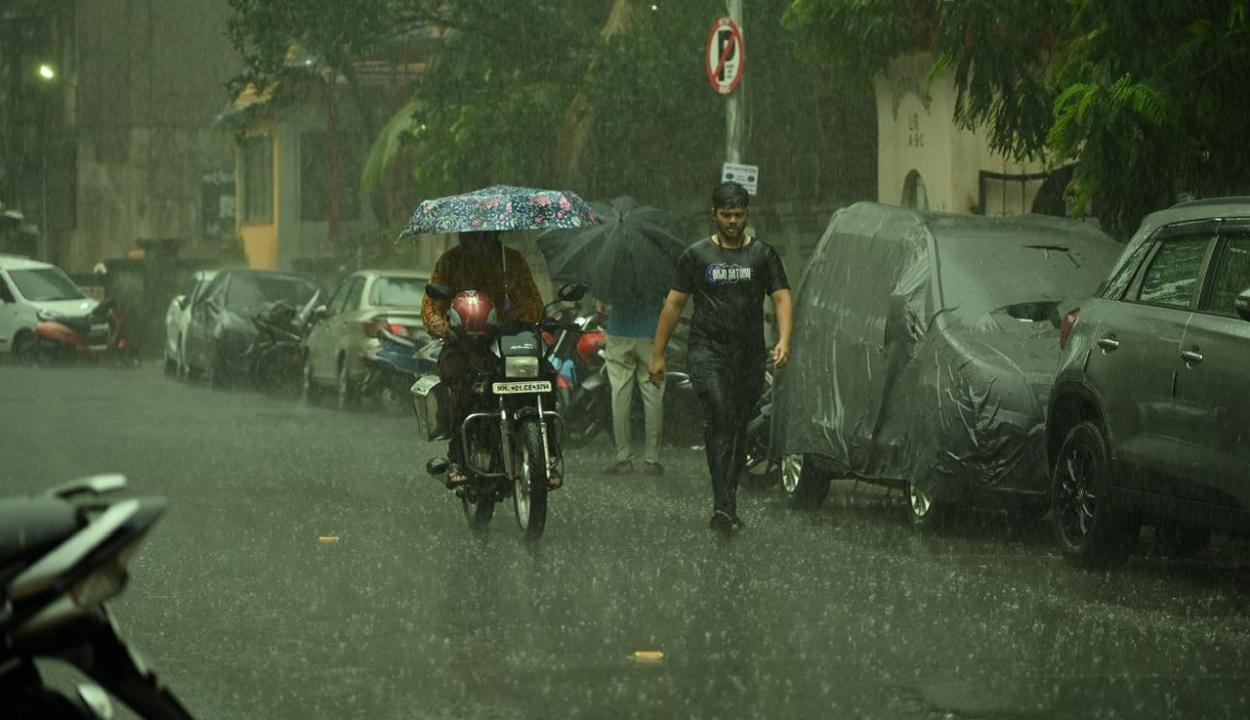Home / Mumbai / Mumbai News / Article /
Mumbai weather update: City receives season's first pre-monsoon showers
Updated On: 05 June, 2024 09:45 AM IST | Mumbai | mid-day online correspondent
Mumbaikars woke up to a cloudy morning and some parts of the city later started receiving light rains from around 7 am
Listen to this article :

Pic/Atul Kamble
Several parts of Mumbai received the first pre-monsoon showers of the season on Wednesday morning, bringing some respite to residents from the scorching heat and humidity. Here's the latest Mumbai weather update.
Mumbaikars woke up to a cloudy morning and some parts of the city later started receiving light rains from around 7 am.



